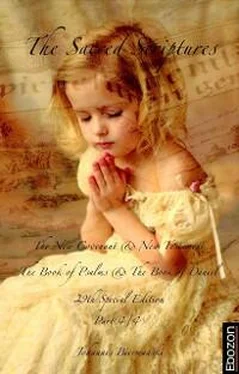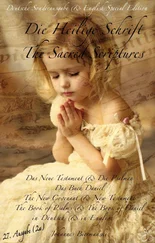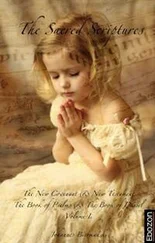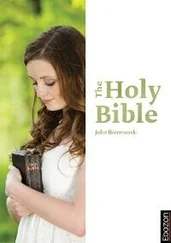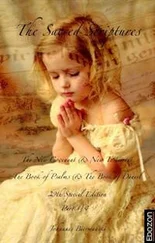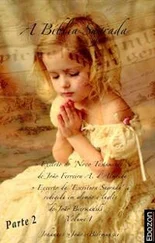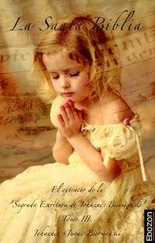"A trivial reason lead to, that the hordes of Huns left for raids in the Balkan province in 441... About 445 appeared Attila south of the Danube, smashed the Roman army and, according to Priskos, who was a contemporary, devastated over seventy cities... The councilor under Attila was no longer like in a bound of tribes the headmen of the clans, but a panel of "friends“, in which there were represented members of different Germanic, Sarmatian and Gothic groups and even Romans. Around him not only Hunnish, but also Latin and Gothic were spoken...The reason for Attilas turning to the west was probably caused by the fact, that the radical plundered provinces no longer could cover the requirements of his hordes... Attila crossed the Rhine in the spring of 451, captured Metz while passing by and took off for Paris... Attila eluded west. In a bloody battle on the Campus Mauriacus (the "Catalaunian Plains“) in the area of Troyes in Champagne died Theodoric; Attila could draw back over the Rhine unopposed. Attila was temporarily weakened. He invaded Italy already in the springtime of 452... Like Alaric before him, Attila preferred to plunder Milan and Pavia. The state of the western realm was desperate. Attila welcomed Pope Leo, who asked for ceasefire and offered tribute payments... Attila withdrew and in the next year he died.“ - 'Propyläen Weltgeschichte', Vol. IV, page 569-571
After the sudden death of Attila in 453, the Huns disappeared from the world affairs. The prophecy speaks of "wormwood“, as picture of the suffering and the death, brought about by the Huns there, where the "big star“, fell down.
Rev./Offb. 8,12 Und der vierte Engel posaunte: und es wurde geschlagen der dritte Teil der Sonne und der dritte Teil des Mondes und der dritte Teil der Sterne, daß ihr dritter Teil verfinstert wurde und der Tag den dritten Teil nicht schien und die Nacht desgleichen.
KJV + EL = And the fourth angel sounded, and the third part of the sun was smitten/ struck, and the third part of the moon, and the third part of the stars; so as the third part of them was darkened, and the day shined not for a third part of it, and the night likewise.
Kap 6,12; 2. Mose 10,21
Erklärung von Ernst Simon:
Beim Posaunen des vierten Engels wurden die Leuchten römischer Regierungsmacht „geschlagen”; die Sonne - das Kaisertum, als sich Odoaker, der Führer der Heruler, zum König ausrufen ließ, und den letzten Kaiser von Rom, Romulus Augustulus, im Jahre 476 n. Chr. absetzte. Der Mond - das zweitwichtigste Amt der Konsulen, bestand noch bis zum Jahre 534, und das in der Weissagung unter dem Bilde der „Sterne” erwähnte Amt des Senats erlosch im Jahre 552. Der Ausdruck „das Drittel” soll sicherlich das allmähliche Schwinden dieser staatlichen Einrichtungen des römischen Reiches beschreiben.
Explanation of Ernst Simon:
When the trumpets of the fourth angel began to sound, the lights of Roman governmental power were “defeated”: the sun - the Empire, as Odoacer, the leader of the Heruli, was proclaimed a king, herewith setting down the last Emperor of Rome, Romulus Augustulus in 476 A.D. The moon - the second most important office of the consuls still existed up to the year 534, and the Senate office mentioned in the prophecy under the guise of “stars” lapsed in 552. The expression “the third” should certainly describe the gradual disappearance of these state institutions of the Roman Empire.
Rev./Offb. 8,13 Und ich sah und hörte einen ENGEL fliegen mitten durch den Himmel und sagen mit großer Stimme: Weh, weh, weh denen, die auf Erden wohnen, vor den anderen Stimmen der Posaune der drei Engel, die noch posaunen sollen!
KJV + EL + LUTHER 1545 = And I beheld, and heard an ANGEL flying through the midst of heaven, saying with a loud voice, Woe, woe, woe, to the inhabitants of the earth by reason of the other voices of the trumpet of the three angels, which are yet to sound!
Chapter/Kapitel 9
Rev./Offb. 9,1 Und der fünfte Engel posaunte: und ich sah einen Stern, gefallen vom Himmel auf die Erde; und ihm wurde der Schlüssel zum Brunnen des Abgrunds gegeben.
KJV + EL = And the fifth angel sounded, and I saw a star fall from heaven to the earth: and to him was given the key of the bottomless pit.
Rev./Offb. 9,2 Und er tat den Brunnen des Abgrunds auf; und es ging auf ein Rauch aus dem Brunnen wie ein Rauch eines großen Ofens, und es wurde verfinstert die Sonne und die Luft von dem Rauch des Brunnens.
KJV + EL = And he opened the bottomless pit; and there arose a smoke out of the pit, as the smoke of a great furnace; and the sun and the air were darkened by reason of the smoke of the pit.
Joel 2,2.10
Rev./Offb. 9,3 Und aus dem Rauch kamen Heuschrecken auf die Erde; und ihnen wurde Macht gegeben, wie die Skorpione auf Erden Macht haben.
KJV + EL = And there came out of the smoke locusts upon the earth: and to them was given power, as the scorpions of the earth have power.
Rev./Offb. 9,4 Und es wurde ihnen gesagt, daß sie nicht beschädigen das Gras auf Erden noch ein Grünes noch einen Baum, sondern allein die Menschen, die nicht das Siegel JAHWEH’s an ihren Stirnen haben.
KJV + EL = And it was commanded them that they should not hurt the grass of the earth, neither any green thing, neither any tree, but only those men which have not the seal of YAHWEH in their foreheads.
Kap 7,3
Rev./Offb. 9,5 Und es wurde ihnen gegeben, daß sie sie nicht töteten, sondern sie quälten fünf Monate lang; und ihre Qual war wie eine Qual vom Skorpion, wenn er einen Menschen schlägt.
KJV + EL = And to them it was given that they should not kill them, but that they should be tormented five months: and their torment was as the torment of a scorpion, when he strikes a man.
Rev./Offb. 9,6 Und in den Tagen werden die Menschen den Tod suchen, und nicht finden; werden begehren zu sterben, und der Tod wird vor ihnen fliehen
KJV + EL = And in those days shall men seek death, and shall not find it; and shall desire to die, and death shall flee from them.
Kap 6,16
Rev./Offb. 9,7 Und die Heuschrecken sind gleich den Rossen, die zum Kriege bereitet sind; und auf ihrem Haupt wie Kronen, dem Golde gleich, und ihr Antlitz gleich der Menschen Antlitz;
KJV + EL = And the shapes of the locusts were like to horses prepared to battle; and on their heads were as it were crowns like gold, and their faces were as the faces of men.
Rev./Offb. 9,8 und hatten Haare wie Weiberhaare, und ihre Zähne waren wie die der Löwen;
KJV + EL = And they had hair as the hair of women, and their teeth were as the teeth of lions.
Rev./Offb. 9,9 und hatten Panzer wie eiserne Panzer, und das Rasseln ihrer Flügel wie das Rasseln an den Wagen vieler Rosse, die in den Krieg laufen;
KJV + EL = And they had breastplates, as it were breast-plates of iron; and the sound of their wings was as the sound of chariots of many horses running to battle.
Rev./Offb. 9,10 und hatten Schwänze gleich den Skorpionen, und es waren Stacheln an ihren Schwänzen; und ihre Macht war, zu beschädigen die Menschen fünf Monate lang.
KJV + EL = And they had tails like to scorpions, and there were stings in their tails: and their power was to hurt men five months.
Rev./Offb. 9,11 Und hatten über sich einen König, den Engel des Abgrunds, des Name heißt auf hebräisch Abaddon, und auf griechisch hat er den Namen Apollyon (= Apollos = Gott des Lichts >der Sonnengott<, der Weissagung, der Musik, der Dichtung und der Todesgott).
KJV + EL = And they had a king over them, which is the angel of the bottomless pit, whose name in the Hebrew tongue is Abaddon, but in the Greek tongue/language he has the name Apollyon.
Rev./Offb. 9,12 Ein Wehe ist dahin; siehe, es kommen noch zwei Wehe nach dem.
KJV + EL = One woe is past: behold, there come two woes more hereafter.
Читать дальше
